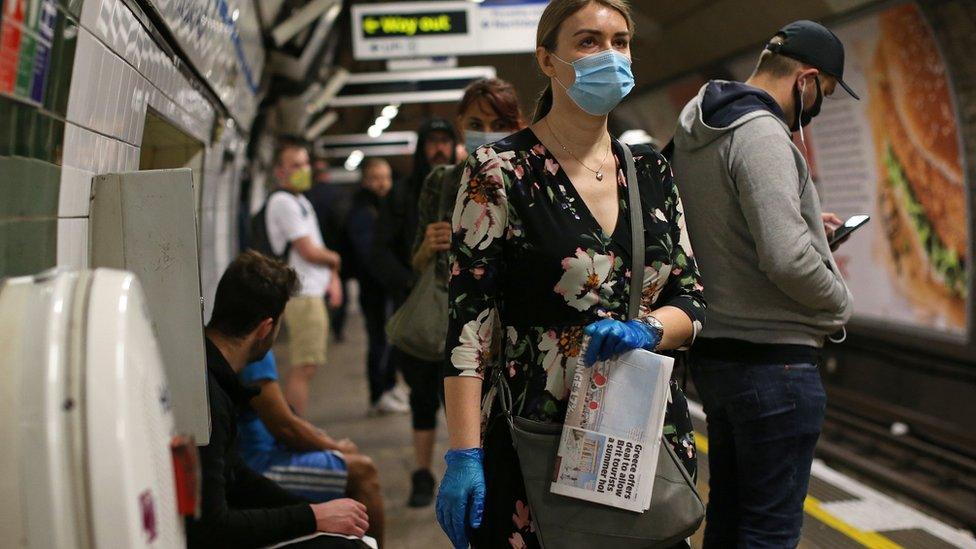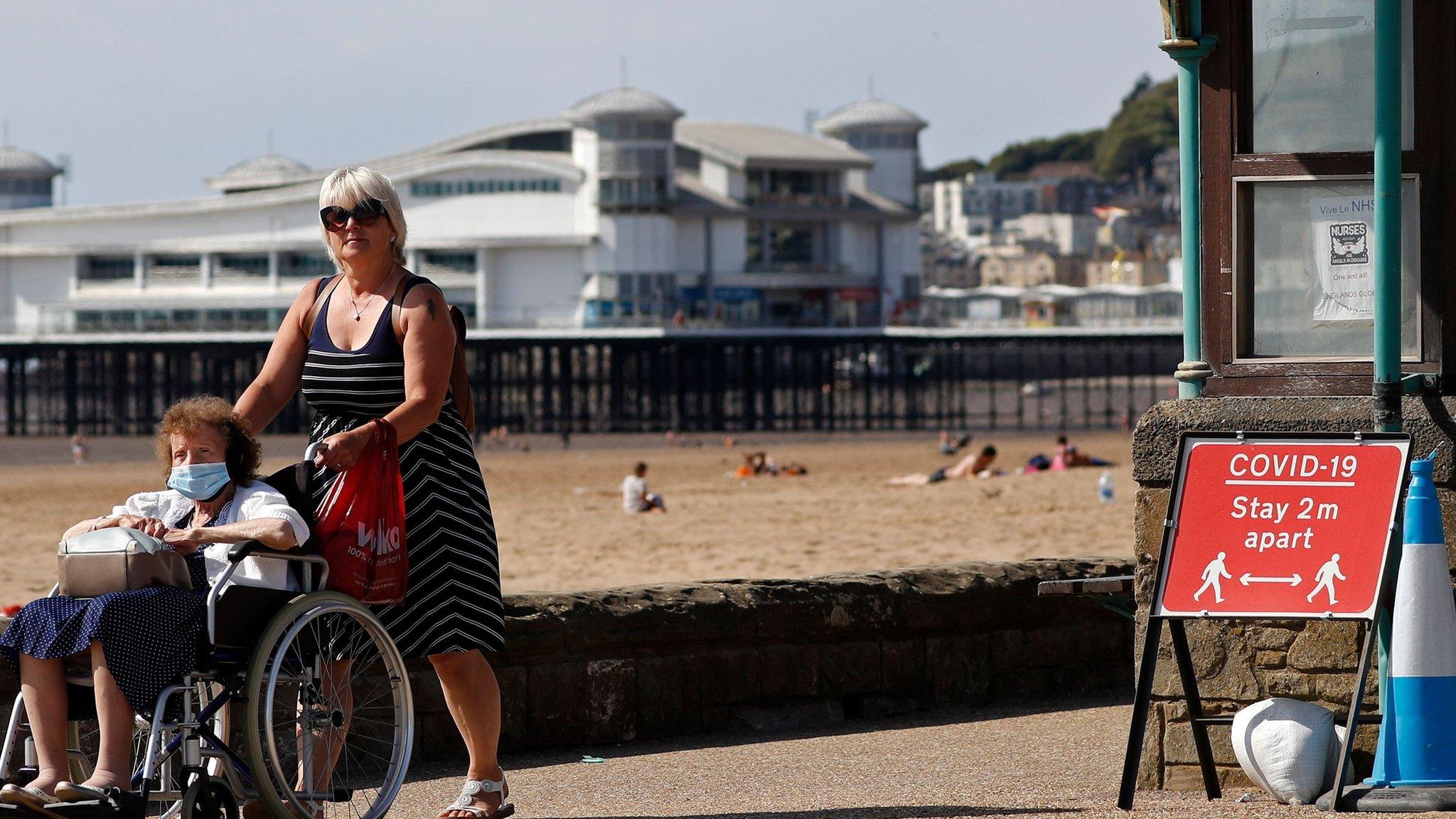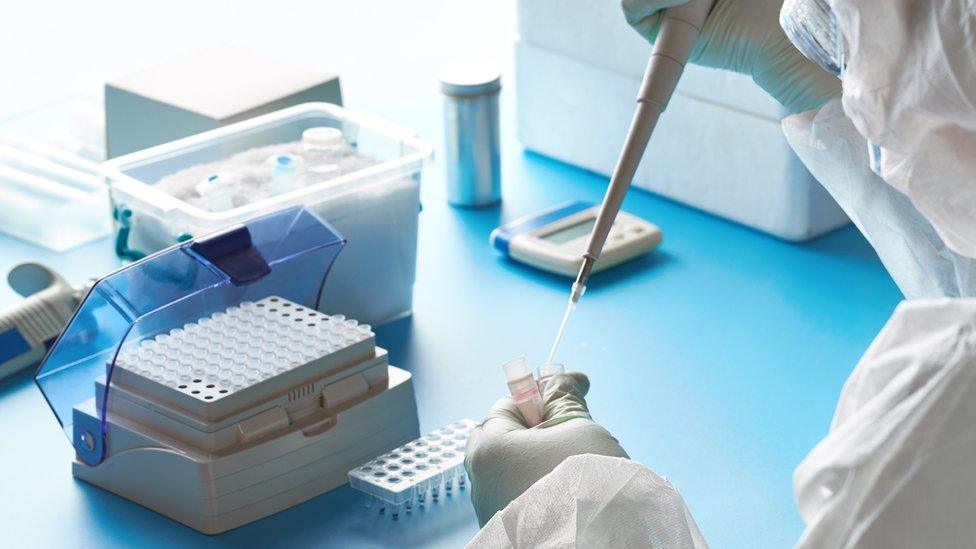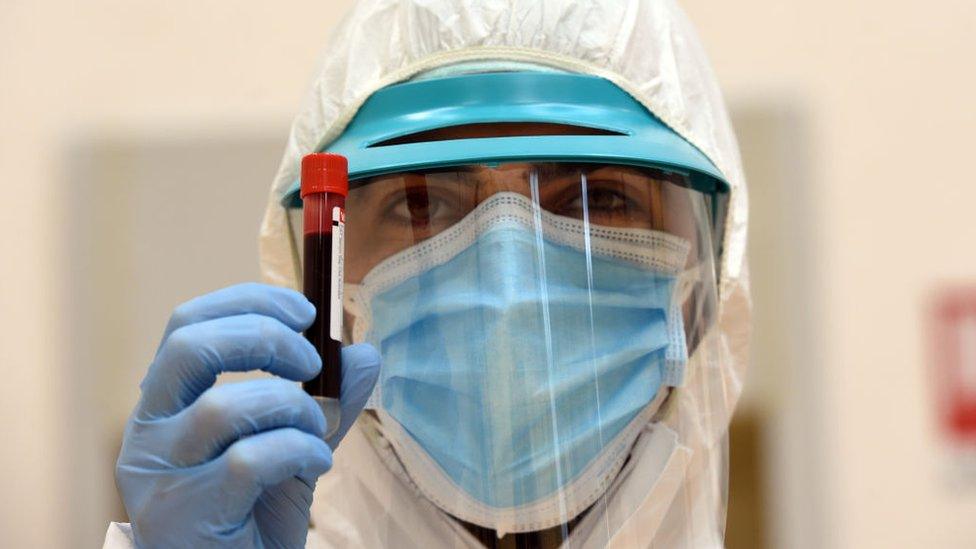Coronavirus: One in four infected by virus cannot be reached
- Published

More than one in four people who test positive for coronavirus cannot be reached by the test and trace system in England, data shows.
In the first two weeks of operation to 10 June, the service was given the details of 14,000 people to follow up.
But fewer than 10,200 could be reached. Some failed to provide contact details, while others did not return calls.
It comes as surveillance of the virus suggests falling rates of infection may have slowed.
An Office for National Statistics study, external for the government found 10 positive cases in the past two weeks out of nearly 25,000 people tested in private households.
It suggests 0.06% of the population - 1 in 1,700 people - is currently infected, similar to the picture a week ago.
A month ago, 1 in 400 people were estimated to be infected.
Is the test and trace system working?
While not all people are engaging with the contact tracers, the figures published suggest that when they do, the system is doing a good job in finding those contacts.
Nine in 10 close contacts provided by people testing positive were found and asked to self-isolate. That equated to more than 87,000 individuals.
What is not clear - because the government is not publishing these figures - is how quickly close contacts are being reached after the positive case is tested.
To be most effective, this should be done within 48 hours of the test being carried out.
Prof Keith Neal, an expert in controlling infectious diseases at the University of Nottingham, said the results were "very encouraging", although he described it as worrying that more than a quarter of people could not be reached.
"This is a public health crisis - the public are key to helping stop it."
'Civic duty'
He also played down concerns that the tracing app might not be available for months, describing it as the "cherry on the cake".
Prof Neal said it had a role in identifying close contacts in situations where you did not know the individuals, for example people you were close to in a shop or on public transport, but these would be at "low risk" anyway.
Ministers have said the public has a "civic duty" to engage with the test and trace system.
Dido Harding, head of England's test and trace system, said it was "undoubtedly helping to save lives", citing two local outbreaks in Leicester and Kirklees in West Yorkshire where local health officials were now investigating and advising the public on.
She said this was natural as lockdown lifts and the important thing was that they were being identified and action was being taken.
She added: "We continue to rely on everyone to play their part, and we urge those with symptoms to book a test immediately, and those contacted by the test and trace service to follow the advice they receive."
Health Secretary Matt Hancock said the system was working, adding: "We are protecting local communities from outbreaks."
Meanwhile, the daily UK update provided by the government has revealed there were 1,218 new infections confirmed in the past 24 hours, while 135 deaths after an infection with coronavirus have been announced.
Follow Nick on Twitter, external

SCHOOLS: When will children be returning?
EXERCISE: What are the guidelines on getting out?
THE R NUMBER: What it means and why it matters
AIR TRAVELLERS: The new quarantine rules
LOOK-UP TOOL: How many cases in your area?


Have you been contacted by a tracer? Tell us by emailing haveyoursay@bbc.co.uk, external.
Please include your telephone number if you are willing to speak to a BBC journalist. You can also contact us in the following ways:
WhatsApp: +44 7756 165803, external
Tweet: @BBC_HaveYourSay, external
Please read our terms & conditions and privacy policy
- Published27 May 2020

- Published18 April 2020

- Published3 May 2022

- Published4 May 2020
